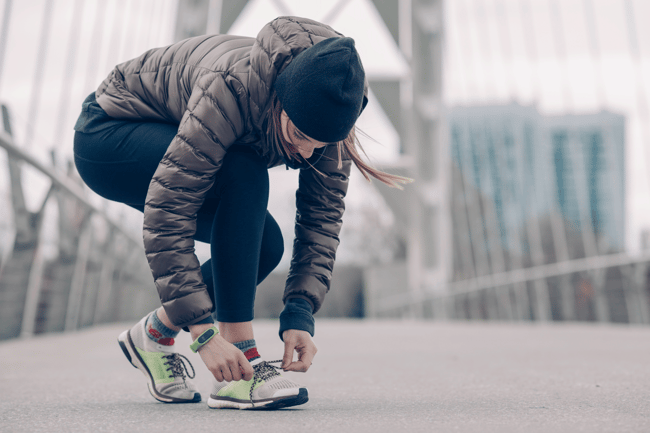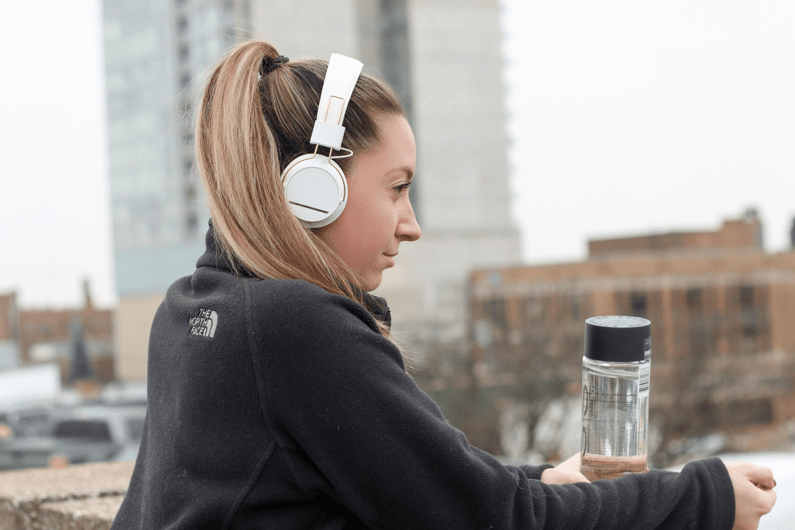
Many people associate dehydration with hot summer days or overexertion in hot and humid climates. However, dehydration isn’t limited to hot weather. You can get dehydrated in cold weather too. Staying hydrated during the summer months can sometimes be easier than staying hydrated in the winter.
Some people get less thirsty in cold weather, so they drink less water. We also tend to sweat less in cold weather. Your body still loses moisture in cold weather, but without sweat as an indicator, you might not realize you need to drink water to replenish fluids.
Signs of Dehydration
Signs of dehydration in adults
- Extreme thirst
- Less frequent urination
- Dark-colored urine
- Fatigue
- Dizziness
- Confusion
Signs of dehydration in infants or young children
- Dry mouth and tongue
- No tears when crying
- No wet diapers for three hours
- Sunken eyes, cheeks
- Sunken soft spot on top of the skull
- Listlessness or irritability
Call your family doctor if you or a loved one show any of the following symptoms:
- Diarrhea for longer than 24 hours.
- Irritability, disoriented, sleepier, or less active than usual.
- Can't keep fluids down.
- Bloody or black stool.
Causes
Sometimes dehydration can be caused by simple reasons, like not drinking enough because you don’t feel well or you are working and haven’t taken a break. Many people who are constantly on the go, drink less water because they don’t want to use the restroom constantly.
- Diarrhea, vomiting. Severe, acute diarrhea—that is, diarrhea that comes on suddenly and violently—can cause a tremendous loss of water and electrolytes in a short amount of time. If you have vomiting, along with diarrhea, you lose even more fluids and minerals.
- Fever. In general, the higher your fever, the more dehydrated you may become. The problem worsens if you have a fever in addition to diarrhea and vomiting.
- Excessive sweating. Naturally, you lose water when you sweat. If you do vigorous activities and don't replace fluids as you go, you can become dehydrated.
- Increased urination. Certain medications, such as diuretics and some blood pressure medications can lead to dehydration, generally because they cause you to urinate more.
Complications
Dehydration can lead to serious complications, including:
- Heat injury. If you don't take in enough fluids when you're exercising vigorously and perspiring heavily, you may end up with a heat injury, ranging in severity from mild heat cramps to heat exhaustion.
- Urinary and kidney problems. Prolonged or repeated bouts of dehydration can cause urinary tract infections, kidney stones, and even kidney failure.
- Seizures. Electrolytes—such as potassium and sodium—help carry electrical signals from cell to cell. If your electrolytes are out of balance, the normal electrical messages can become mixed up, which can lead to involuntary muscle contractions and sometimes to a loss of consciousness.
- Low blood volume shock (hypovolemic shock). This is one of the most serious and sometimes life-threatening complications of dehydration. It occurs when low blood volume causes a drop in blood pressure and a drop in the amount of oxygen in your body.
Tips for Staying Hydrated in Cold Weather
- It’s important to stay hydrated during colder weather. Simply remembering to drink more water can help prevent dehydration in the winter.
- Drink water and replenish fluids, especially after or during physical activity. Invest in a reusable water bottle and drink slowly instead of gulping it all down at once.
- Don’t rely on thirst to tell you when you need to drink water. Make a point to drink a certain amount of water each day.
- Eat more water-rich foods. Fill up on your fruits and vegetables! You can get water from the foods you eat, like watermelon, cantaloupe, leafy greens and tomatoes! These foods contain 90% water.
- If you find it difficult to drink water when it’s cold outside, drink warm beverages, like decaffeinated hot tea, herbal tea, or hot cider.
- Always have water with you. A reusable water bottle can help keep you hydrated year-round. If you normally carry water with you during the summer, continue the habit through the winter.
- Avoid alcohol and caffeinated drinks that can cause dehydration.
Learn to recognize the signs of dehydration, but better yet, be proactive and prevent dehydration by being mindful of your water intake daily. Remember that more activity requires more hydration. Check out our winter workout tips here.
If symptoms of severe dehydration are concerning enough, they may also require the assistance of a medical professional. Impact members can schedule an online visit with a doctor for FREE from the comfort of their home, car or office.
If you’d like to learn more about these free visits visit our website!



